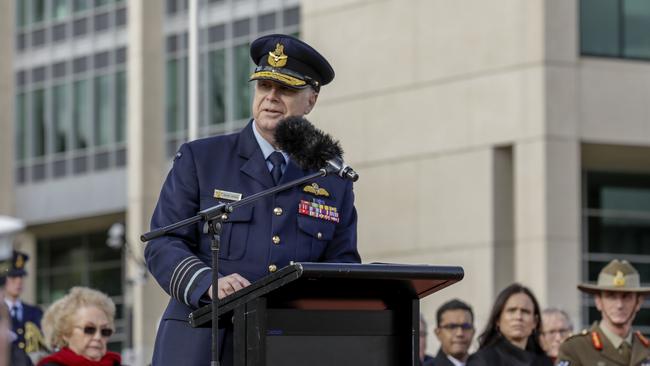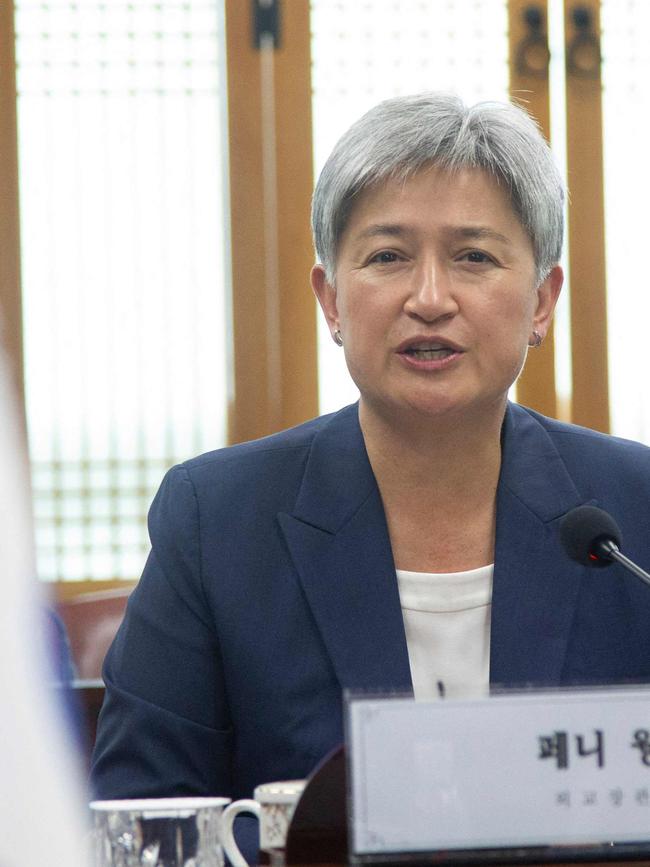Binskin report exposes more flaws at home than in Israel

The Israelis certainly had no duty to assist. To interfere in a foreign country’s domestic military review and discipline was a diplomatic insult to Israel, implying it couldn’t conduct its own investigation without external supervision.
Binskin’s conclusions undercut narratives about wanton Israeli breaches of international humanitarian law and laws of armed conflict. He reports that Israel’s acceptance of accountability for the WCK incident – and its investigation, reporting and response – has been “timely, appropriate and, with some exceptions, sufficient”.

The main exception he mentions was that the IDF public statement released on April 5 lacked specific detail in the closed debrief which could have helped “reduce confusion and speculation”.
Accusations that the deaths occurred because of deliberate targeting of aid workers or flawed targeting policies find no support from Binskin.
Instead, he found “the IDF’s view of the material issues in respect of targeting law relevant to this incident – particularly precautions in attack, including identification criteria and classification of people in terms of liability to lethal targeting – are the same as the Australian Defence Force would likewise be concerned with in such a situation”.Binskin points out that the IDF’s view on the rules of engagement and standard operating procedures appear similar to the ADF.
Rather than this being a war crime – as was implied in the Australian debate at the time of the deaths – Binskin observes that the WCK incident “is not dissimilar to situations that other Western militaries have faced, such as in relation to the Kunduz hospital attack in Afghanistan, which killed many civilians and destroyed a hospital, but where the underlying conduct – while culpable – was not assessed as meeting the requirements for a charge of unlawful killing”.
It beggars belief that Foreign Minister Penny Wong failed to note Binskin’s finding that the IDF received reasonable and justified opinion that the WCK convoy was under Hamas control (or someone with links to Hamas) and that they were armed in contravention of WCK protocols.

If the IDF failed, WCK also contributed to this failure in a variety of ways, not discussed by the Foreign Minister. For example, WCK didn’t adhere to its own communication protocols.
Why didn’t the Foreign Minister mention any of this at her press conference? When the Albanese government two years ago reversed Scott Morrison’s 2018 decision to recognise West Jerusalem as Israel’s capital, Wong accused him of being irresponsible and using foreign policy as a cynical play to win the seat of Wentworth in a by-election.
In not discussing the full findings of Binskin’s review, Wong also risks being accused of playing internal Labor politics on our relations with Israel, and responding to political threats to the Labor Party from the Greens on Middle East policy.
In some ways, the most striking findings contained in Binskin’s report tell us about Australian failings, not Israeli ones. The IDF took actions to investigate the incident in the 72 hours following it. The officer who guided the strike was dismissed, as was the brigade chief of staff above him.
Three more senior officers further up the IDF’s command chain were formally reprimanded. Binskin notes that this is likely to affect their future careers and service.
He points out that possible legal action against some of these personnel is likely to be decided on in the coming months, with prosecutions possible over the next year.
It’s worth highlighting that the process has been unlike the Australian approach to investigating and prosecuting the Afghan war crimes allegations from 2012.
In what can only be regarded as a massive understatement, Binskin says the “command power in Australia can also support quick decisions regarding removal from post in operational situations (but) the ADF could not have imposed equivalent reprimands as quickly as the IDF”.

Instead of Israel’s rapid, decisive action, we’ve waited 12 years from the conduct and allegations with no single commander dismissed or prosecuted. Indeed, the senior officers in charge have been awarded high military honours. One person is being prosecuted and more might be at some future point, but they’re foot soldiers, not officers who held command responsibility.
No reports or prosecutions can bring Zomi Frankcom back to her family. But Binskin’s report should shine a light on the institutional weaknesses within our own government and military. This should finally reignite the work to hold Australian commanders to account for their failings in Afghanistan.
Just as importantly, it can provide a foundation for informed discussion of the conflict in Gaza and Israel’s militarys actions. It should quieten the echo chamber that condemns the IDF without knowledge or insight into how it operates in a uniquely complex, dense urban combat environment, with tunnels, concealed weapons and hostages.
Michael Shoebridge is director of Strategic Analysis Australia. Anthony Bergin is a senior fellow at Strategic Analysis Australia and an expert associate at the National Security College.





Former chief of the Australian Defence Force Mark Binskin’s report into the tragic killing of Zomi Frankcom and six other aid workers from the World Central Kitchen in Gaza informs us that all Israeli parties engaged constructively with him and provided all the information he required.